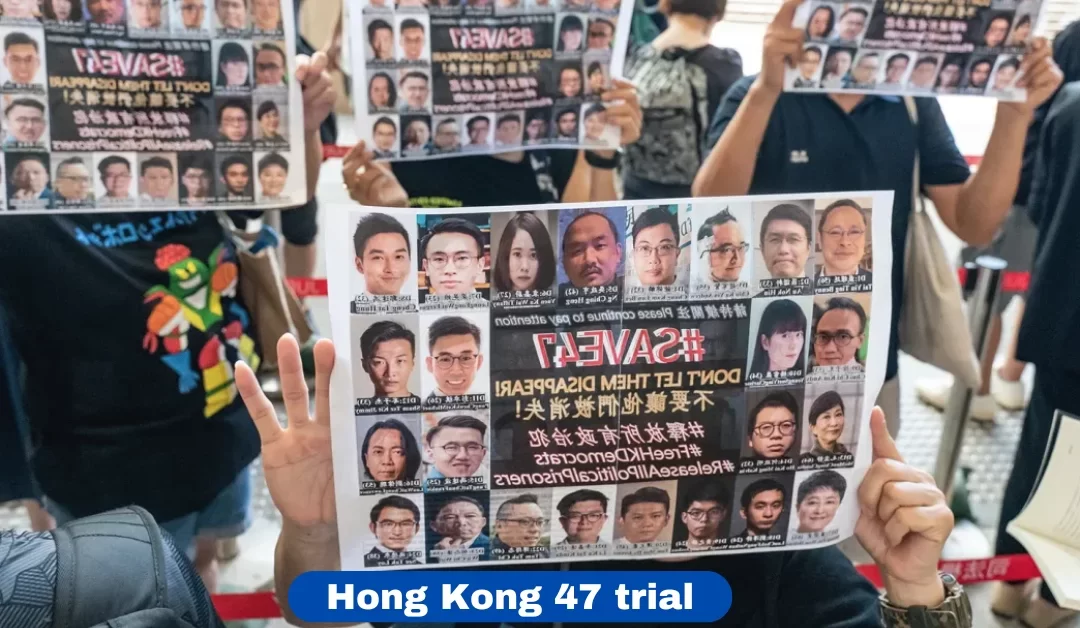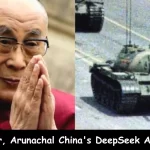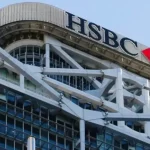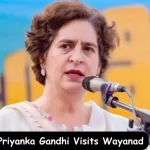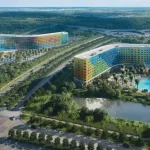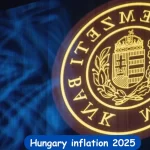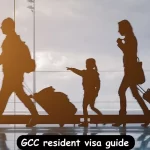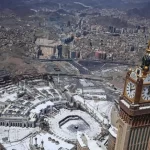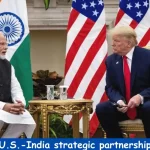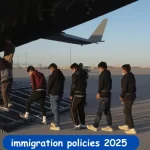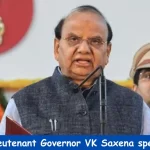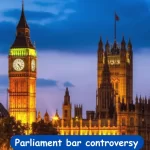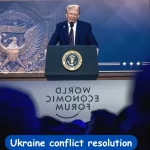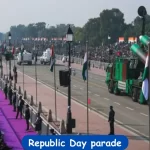Over 40 prominent pro-democracy leaders in Hong Kong have received prison sentences ranging from four to ten years in a landmark trial. This case marks a pivotal moment in the erosion of the city’s once-vibrant political freedoms, following Beijing’s sweeping crackdown on dissent through its controversial National Security Law.
The Landmark Sentences
The sentencing of 45 defendants, including former lawmakers, activists, union leaders, and journalists, represents the largest single prosecution to date under Hong Kong’s National Security Law.
- Joshua Wong, a well-known activist, was sentenced to 4 years and 8 months in prison. Before leaving the dock, he shouted, “I love Hong Kong.”
- Benny Tai, a legal scholar deemed the “mastermind” by the court, received the longest sentence of 10 years.
- Gwyneth Ho, a former journalist, was sentenced to 7 years, and Leung Kwok-hung, known as “Long Hair,” received 6 years and 9 months for his decades-long advocacy for democracy.
These sentences reflect Beijing’s firm stance against any opposition in Hong Kong, transforming the city’s political environment into one that mirrors mainland China’s strict authoritarianism.
The Context: Erosion of Freedoms
The National Security Law was introduced in 2020, following mass pro-democracy protests in 2019. This law criminalizes acts of subversion, secession, terrorism, and collusion with foreign forces.
Since its implementation:
- Most opposition figures are either imprisoned or in exile.
- Independent media outlets have shut down, and civil society groups have disbanded.
- The Legislative Council, once a platform for vocal debates, now consists entirely of pro-Beijing loyalists.
The Hong Kong government defends these changes as necessary to restore stability, but critics argue that the measures have stifled freedoms and suppressed peaceful dissent.
Key Events Leading to the Trial
The charges stem from an unofficial primary election organized by the defendants in 2020. The goal was to secure a pro-democracy majority in the Legislative Council elections.
- Authorities argued the primary was a “well-organized scheme to subvert the government.”
- In May 2023, 14 of the defendants contested the charges, while 31 pleaded guilty in hopes of lighter sentences.
- By November, the courts had convicted all but two defendants.
The trial, widely known as the “Hong Kong 47” case, has drawn global attention and condemnation.
Global and Local Reactions
The sentences have sparked strong criticism from international governments and human rights organizations.
- The United States called for the release of political prisoners, describing the trial as a politically motivated prosecution aimed at silencing dissent.
- Human rights groups condemned the harsh sentences, emphasizing the growing gap between Hong Kong’s current state and its once-celebrated freedoms.
Locally, the crackdown has silenced protests. Demonstrations, once a hallmark of Hong Kong’s civil society, have largely disappeared under the new regime.
Broader Implications
Impact on Political Landscape
Hong Kong’s Legislative Council has been restructured to ensure only “patriots” can hold office. Of the 90 seats:
- Only 20 members are elected by citizens.
- 40 seats are filled by a pro-Beijing committee, ensuring a majority.
This shift has left Hong Kong without a robust opposition, further reducing citizens’ ability to participate in policymaking.
Legal and Human Rights Concerns
The crackdown has introduced sweeping changes to laws governing treason, espionage, and foreign interference, significantly curbing individual freedoms. Experts argue these laws are used as tools to silence dissent, leaving citizens with fewer ways to express their views.
The Future of Hong Kong
While Beijing and the Hong Kong government argue that these measures restore stability and efficiency, critics fear they have permanently dismantled Hong Kong’s unique identity.
- Formerly a hub for peaceful protests, Hong Kong is now a controlled environment where dissent is heavily penalized.
- The possibility of restoring political inclusivity appears slim, as authorities reject protests and assemblies as legitimate forms of expression.
Prominent voices like Professor John Burns have highlighted the dramatic decline in citizens’ participation in politics and the ongoing restrictions on human rights.

